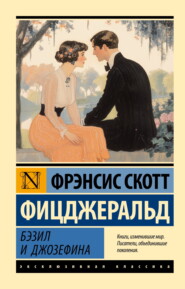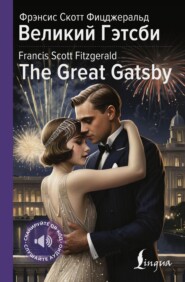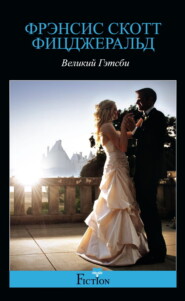По всем вопросам обращайтесь на: info@litportal.ru
(©) 2003-2024.
✖
The Last Tycoon / Последний магнат. Книга для чтения на английском языке
Настройки чтения
Размер шрифта
Высота строк
Поля
“Only going up in the air.”
“Not this time, old man.[22 - Not this time, old man. – (разг.) Как-нибудь в другой раз, старина.]”
In his disappointment the drunk fell off the bench – and above the phonograph, a loudspeaker summoned us respectable people outside. In the corridor of the plane I ran into Monroe Stahr and fell all over him, or wanted to. There was a man any girl would go for, with or without encouragement. I was emphatically without it, but he liked me and sat down opposite till the plane took off.
“Let’s all ask for our money back,” he suggested. His dark eyes took me in, and I wondered what they would look like if he fell in love. They were kind, aloof and, though they often reasoned with you gently, somewhat superior. It was no fault of theirs if they saw so much. He darted in and out of the role of “one of the boys” with dexterity – but on the whole I should say he wasn’t one of them. But he knew how to shut up, how to draw into the background, how to listen. From where he stood (and though he was not a tall man, it always seemed high up) he watched the multitudinous practicalities of his world like a proud young shepherd to whom night and day had never mattered. He was born sleepless, without a talent for rest or the desire for it.
We sat in unembarrassed silence – I had known him since he became Father’s partner a dozen years ago, when I was seven and Stahr was twenty-two. Wylie was across the aisle and I didn’t know whether or not to introduce them, but Stahr kept turning his ring so abstractedly that he made me feel young and invisible, and I didn’t dare. I never dared look quite away from him or quite at him, unless I had something important to say – and I knew he affected many other people in the same manner.
“I’ll give you this ring, Cecilia.”
“I beg your pardon. I didn’t realize that I was —”
“I’ve got half a dozen like it.”
He handed it to me, a gold nugget with the letter S in bold relief. I had been thinking how oddly its bulk contrasted with his fingers, which were delicate and slender like the rest of his body, and like his slender face with the arched eyebrows and the dark curly hair.
He looked spiritual at times, but he was a fighter – somebody out of his past knew him when he was one of a gang of kids in the Bronx, and gave me a description of how he walked always at the head of his gang, this rather frail boy, occasionally throwing a command backward out of the corner of his mouth.
Stahr folded my hand over the ring, stood up and addressed Wylie.
“Come up to the bridal suite,” he said. “See you later, Cecilia.”
Before they went out of hearing, I heard Wylie’s question: “Did you open Schwartz’s note?”
And Stahr: “Not yet.”
I must be slow, for only then did I realize that Stahr was Mr. Smith.
Afterwards Wylie told me what was in the note. Written by the headlights of the taxi, it was almost illegible.
“Dear Monroe,
You are the best of them all I have always admired your mentality so when you turn against me I know it’s no use! I must be no good and am not going to continue the journey let me warn you once again look out! I know.
“Your friend MANNY.”
Stahr read it twice, and raised his hand to the morning stubble on his chin.
“He’s a nervous wreck[23 - He’s a nervous wreck – (разг.) Он неврастеник],” he said. “There’s nothing to be done – absolutely nothing. I’m sorry I was short with him – but I don’t like a man to approach me telling me it’s for my sake.”
“Maybe it was,” said Wylie.
“It’s poor technique.”
“I’d fall for it,” said Wylie. “I’m vain as a woman. If anybody pretends to be interested in me, I’ll ask for more. I like advice.”
Stahr shook his head distastefully. Wylie kept on ribbing him – he was one of those to whom this privilege was permitted.
“You fall for some kinds of flattery,” he said. “This ‘little Napoleon stuff.’”
“It makes me sick,” said Stahr, “but it’s not as bad as some man trying to help you.”
“If you don’t like advice, why do you pay me?”
“That’s a question of merchandise,” said Stahr. “I’m a merchant. I want to buy what’s in your mind.”
“You’re no merchant,” said Wylie. “I knew a lot of them when I was a publicity man, and I agree with Charles Francis Adams[24 - Charles Francis Adams – Чарльз Френсис Адамс (1807–1886), сын Джона Квинси Адамса (1767–1848), 6-го президента США; писатель, дипломат].”
“What did he say?”
“He knew them all – Gould[25 - Gould – Джейсон Гулд (1836–1892), американский финансист], Vanderbilt[26 - Vanderbilt – Корнелиус Вандербильд (1794–1877), американский промышленник], Carnegie[27 - Carnegie – Эндрю Карнеги (1835–1919), американский промышленник, филантроп], Astor[28 - Astor – Джон Джейкоб Астор (1763–1848), американский торговец мехом, капиталист] – and he said there wasn’t one he’d care to meet again in the hereafter. Well – they haven’t improved since then, and that’s why I say you’re no merchant.”
“Adams was probably a sourbelly,” said Stahr. “He wanted to be head man himself, but he didn’t have the judgment or else the character.”
“He had brains,” said Wylie rather tartly.
“It takes more than brains.[29 - It takes more than brains. – (разг.) Здесь нужны не только мозги.] You writers and artists poop out and get all mixed up, and somebody has to come in and straighten you out.” He shrugged his shoulders. “You seem to take things so personally, hating people and worshipping them – always thinking people are so important – especially yourselves. You just ask to be kicked around. I like people and I like them to like me, but I wear my heart where God put it – on the inside.”
He broke off.
“What did I say to Schwartz in the airport? Do you remember – exactly?”
“You said, ‘Whatever you’re after, the answer is No!’”
Stahr was silent.
“He was sunk,” said Wylie, “but I laughed him out of it. We took Billy Brady’s daughter for a ride.”
Stahr rang for the stewardess.
“That pilot,” he said, “would he mind if I sat up in front with him awhile?”
“That’s against the rules, Mr. Smith.”
“Ask him to step in here a minute when he’s free.”
Stahr sat up front all afternoon. While we slid off the endless desert and over the table-lands, dyed with many colors like the white sands we dyed with colors when I was a child. Then in the late afternoon, the peaks themselves – the Mountains of the Frozen Saw – slid under our propellers and we were close to home.
When I wasn’t dozing I was thinking that I wanted to marry Stahr, that I wanted to make him love me. Oh, the conceit! What on earth did I have to offer? But I didn’t think like that then. I had the pride of young women, which draws its strength from such sublime thoughts as “I’m as good as she is.” For my purposes I was just as beautiful as the great beauties who must have inevitably thrown themselves at his head. My little spurt of intellectual interest was of course making me fit to be a brilliant ornament of any salon.
I know now it was absurd. Though Stahr’s education was founded on nothing more than a night-school course in stenography, he had a long time ago run ahead through trackless wastes of perception into fields where very few men were able to follow him. But in my reckless conceit I matched my grey eyes against his brown ones for guile, my young golf-and-tennis heart-beats against his, which must be slowing a little after years of over-work. And I planned and I contrived and I plotted – any woman can tell you – but it never came to anything, as you will see. I still like to think that if he’d been a poor boy and nearer my age I could have managed it, but of course the real truth was that I had nothing to offer that he didn’t have; some of my more romantic ideas actually stemmed from pictures – 42nd Street, for example, had a great influence on me. It’s more than possible that some of the pictures which Stahr himself conceived had shaped me into what I was.
So it was rather hopeless. Emotionally, at least, people can’t live by taking in each other’s washing.
But at that time it was different: Father might help, the stewardess might help. She might go up in the cockpit and say to Stahr: “If I ever saw love, it’s in that girl’s eyes.”
The pilot might help: “Man, are you blind? Why don’t you go back there?”

















